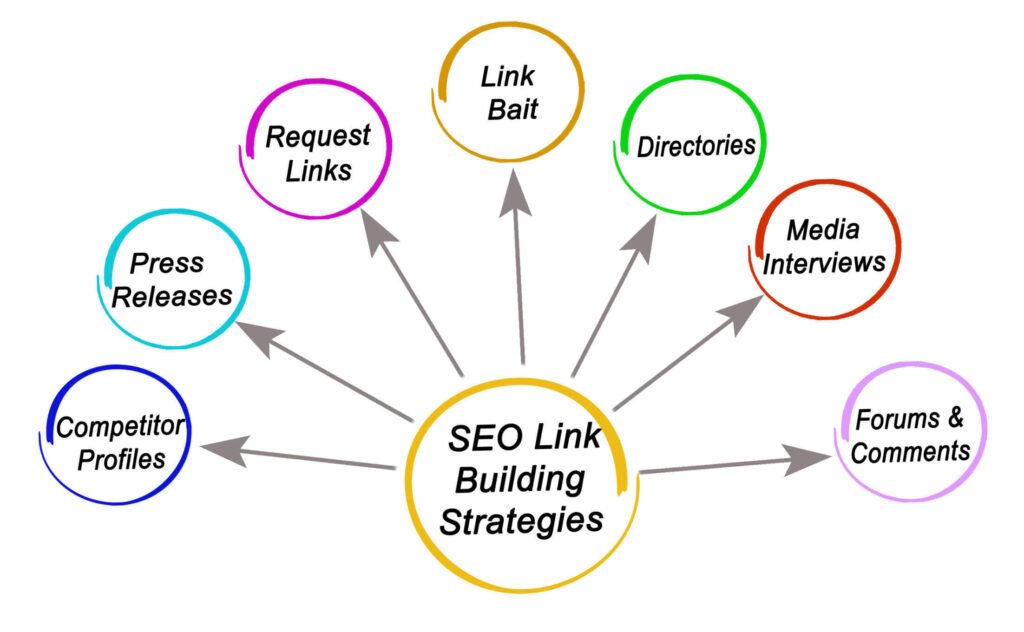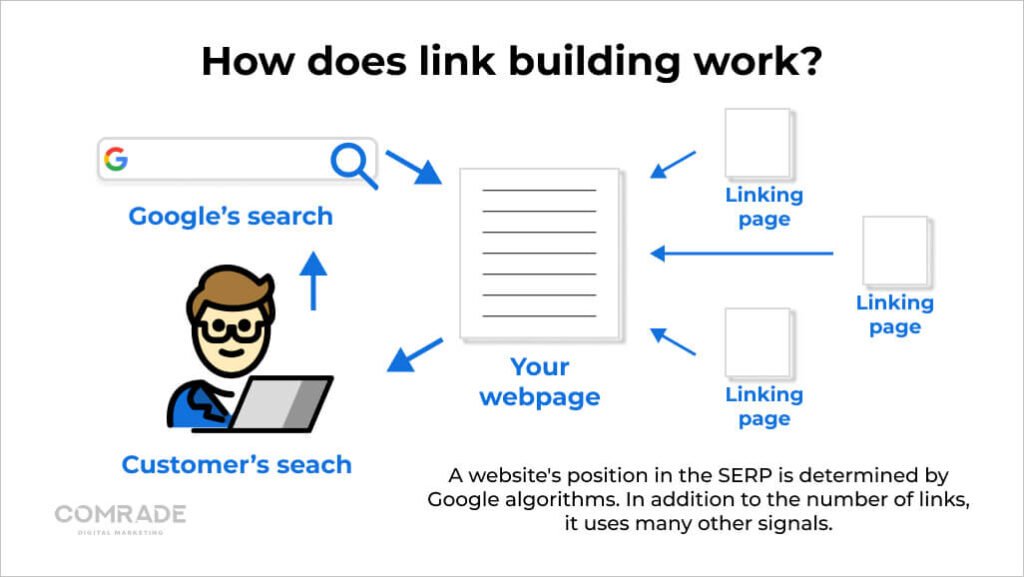EMAIL AT- support@itldigitaltech.com CALL AT- +8801830312344

Link building is an important aspect of search engine optimization (SEO) which is acquiring hyperlinks from your own website. These links help search engines like Google crawl the web, discover new content, and determine the authority and relevance of web pages. Here is a comprehensive guide covering the basics of advanced techniques for effective link-building
Table of Contents
The Basics of Link Building
Link building is the process of getting your own backlinks from external websites. Backlinks act as a vote of confidence from one site to another and are a major factor in search engine ranking algorithms.
Why is link building important?
Improves Organic Ranking: Quality backlinks are one of the reasons for top ranking in Google.
Increases website traffic: Referral traffic from backlinks can bring visitors.
Increases Brand Authority: Linking from authentic sites increases your credibility.
link Type
Natural Links: Provided editorially without any action on the part of the page owner.
Manually Built Links: Acquired through intentional link-building activities.
Self-built links: Created by adding backlinks to online directories, forums or blog comments.

Key link building techniques
1. Content Creation and Promotion:
Creating high-quality, valuable content that others naturally want to link to is fundamental. Share your content widely to increase your chances of gaining visibility and backlinks.
2. Guest blogging:
Write articles for other websites in your niche, which usually allows you to include a backlink to your own site in the author bio or content.
3. Broken link building:
Find broken links on other websites and suggest your own content as a replacement. Use tools like Ahrefs or Broken Link Checker to identify these opportunities.
4. Skyscraper Technique:
Identify high-performing content in your niche, create something better, and reach out to people who linked to the original content, suggesting they link to your enhanced version.
5. Competitor Analysis:
Analyze your competitors’ backlink profiles using tools like Ahrefs or SEMrush and identify where they are getting their links from. Note getting links from the same or similar sources.

Advanced link building techniques
1. Resource page link building:
Find resource pages in your niche and request that your site be added as a valuable resource. This works best if your content is comprehensive and authoritative.
2. Building links through infographics:
Create visually appealing infographics that deliver value. Share them widely and offer an embed code for easy sharing, including a backlink to your site.
3. Effective outreach:
Engage and build relationships with influencers in your industry. Influencers can amplify and link to your content from their websites or social media profiles.
4. Link Free Reference:
Use tools like Google Alerts or mentions to find instances where your brand is mentioned without a link. Contact the authors and request a backlink.
5. Link recovery:
Monitor your existing backlinks to ensure they are intact. If a link is removed or changed to nofollow, contact the site owner to restore the link.
Measuring link building success
Use tools like Google Analytics, Ahrefs or Moz to track the performance of your link-building efforts. Key metrics include:
Domain Authority (DA): A measure of your site’s authority based on backlink quantity and quality.
Referral Traffic: Visitors to your site through backlinks.
Number of Backlinks: The number of links pointing to your site.
Keyword Ranking: Improve rankings for targeted keywords.
Best Practices for Link Building
Focus on quality over quantity: A few high-quality links are worth more than many low-quality links.
Diversify your link profile: Get links from different sources and types of websites.
Maintain relevance: Make sure the links come from sites relevant to your niche.
Avoid black hat techniques: such as buying links, using link farms or engaging in additional link exchanges. This may result in fines from search engines.
Conclusion:
Link building is an ongoing process that requires a strategic approach to acquiring high-quality backlinks. By creating valuable content, building relationships, and using both basic and advanced techniques, you can improve your site’s authority and search engine rankings. Monitor your progress regularly and adapt your strategies to stay ahead in the competitive landscape of SEO.



